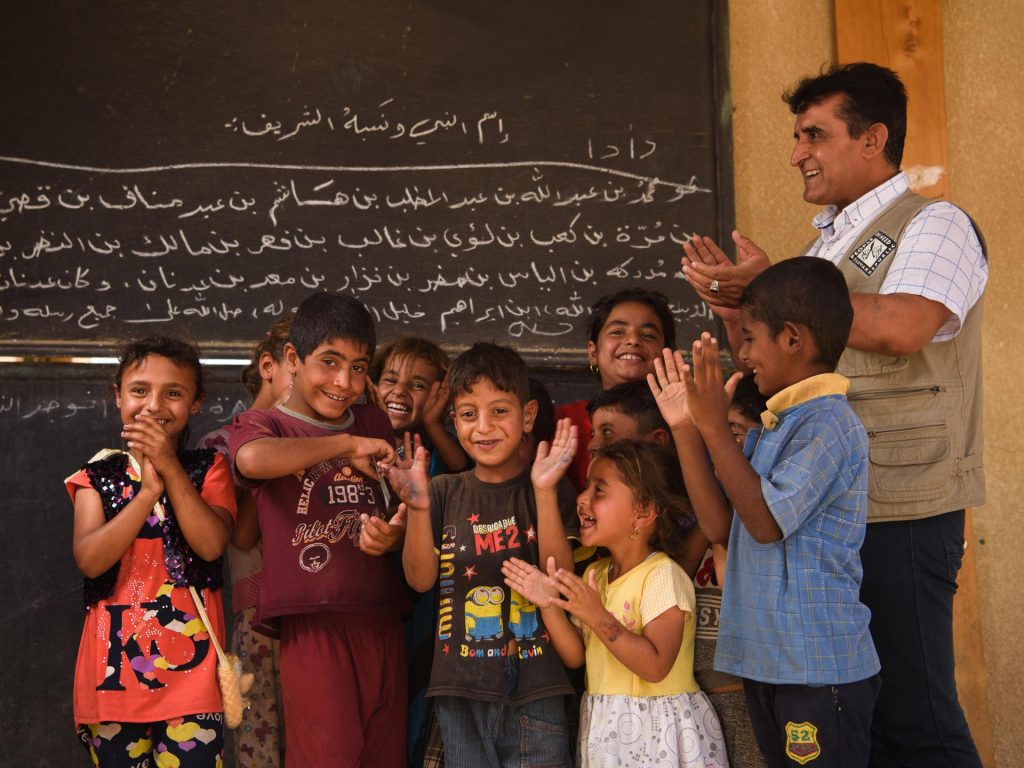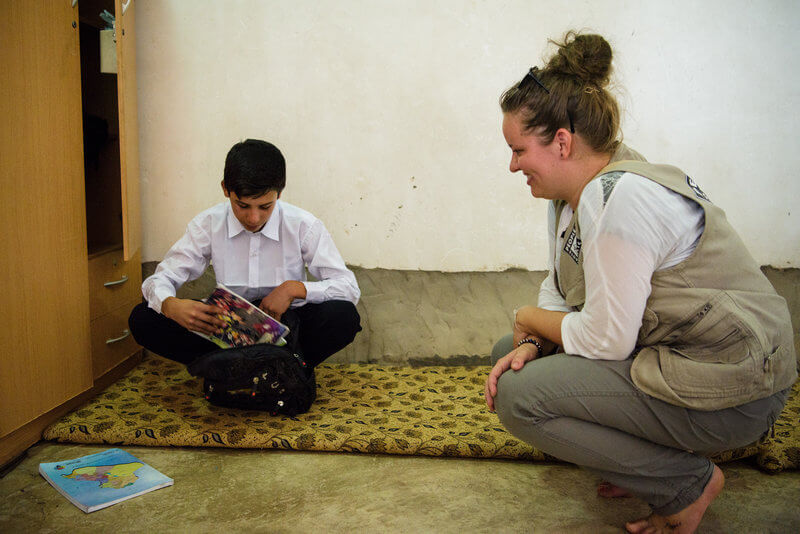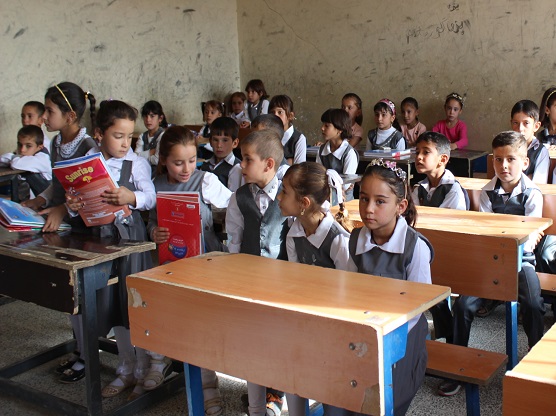Iraq
The ongoing conflict in Iraq has had a serious negative impact on children, threatening the future of an entire generation. More than 1.2 million children were out of school, not because they did not want to go, but because of the circumstances in which they found themselves. Many of these children were internally displaced, forcing them to interrupt their schooling for long periods of time. More than 765,000 children have missed an entire school year, and some have attended schools under the extremist influence of the Islamic State.
In the Zummar area of northern Iraq, we have worked to make life easier for children and improve their access to education. That’s why we distributed new school supplies and furniture among five schools. In one of the schools, where space was no longer sufficient, we built five new classrooms. We had originally prepared classes and leisure activities for 720 children, but in the end we had 1,542 children. We also involved parents and caregivers in this effort, spreading the word through minaret amplifiers. We trained teachers so they could better work with trauma-affected children.
Life in the city of Bawiza in northern Iraq was not easy either. The war there has destroyed roads and made access to education and health care difficult. As a result, many people, including children, remained in IDP camps. We wanted to help them return, so we started building two new classrooms for an elementary school with a capacity of 1,600 students. The school had been overcrowded for a long time, which caused problems – the pupil to teacher ratio was as high as 50 to 1 in some cases. Thanks to the help of Startlab donors, we were able to improve the teaching conditions for these children.
After the liberation of Mosul from the Islamic State, it was essential to start helping the most vulnerable groups. In West Mosul, we therefore provided multi-purpose direct financial assistance that best met the needs of IDPs, returnees and the poorest residents.





